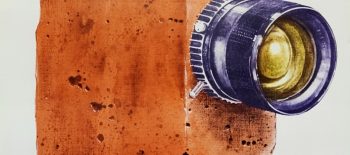In person viewing at Anthology Film Archives on March 29, 2022 at 7:30 PM ET
Online viewing on March 30-April 12, 2022 details to be announced at a later date
Anthology Film Archives is located on 32 Second Avenue New York, NY 10003
Polish composer and conductor Krzysztof Penderecki (1933-2020) was one of the progenitors of avant-garde music of the 1960s. Creator of his own compositional idiom, “sonorism”, which became a hallmark of the so-called Polish School of Composition, he was an early recipient of the UNESCO International Rostrum of Composers Prize for “Threnody to the Victims of Hiroshima” (1961). Recipient of hundreds of prizes (including five Grammy Awards), he achieved a rare balance between radical experimentation and an approach to classical music that struck a chord within popular culture. Conducting his own concerts, he had a unique ability to elicit emotional responses from his audiences and to convey messages of profound humanism. Throughout his career, Penderecki worked in multiple forms – symphony, opera, concerto, vocal and chamber works – producing masterpieces such as “Dies Irae” (1967), “Jutrznia” (1970-71), and the opera “The Devils of Loudun” (1968-69). He was particularly drawn to religious music and was the first modern composer to revive the form of the Passion (with 1966’s “St. Luke’s Passion”).
Penderecki’s music was embraced early on in the cinematic realm. Though he rarely composed directly for feature films, exceptions include Wojciech Has’s THE SARAGOSSA MANUSCRIPT (1964) and THE CODES (1964), and Alain Resnais’s JE T’AIME, JE T’AIME. And his pre-existing compositions were often borrowed for film soundtracks, most famously appearing in William Friedkin’s THE EXORCIST (1973), Stanley Kubrick’s THE SHINING (1980), Jerzy Skolimowski’s HANDS UP! (1981), Andrzej Wajda’s KATYN (2007), and Martin Scorsese’s SHUTTER ISLAND (2010). More recently, Penderecki’s “Threnody for the Victims of Hiroshima” accompanied one of the most unforgettable scenes in David Lynch’s TWIN PEAKS: THE RETURN (2017).
Most of the film music Penderecki composed came in the first phase of his career, and was written for short films in his native Poland. In the early 1960s, he began writing film music at the Polish Radio Experimental Studio together with Eugeniusz Rudnik, a sound engineer and pioneer of electronic music. Penderecki was at first reluctant to explore electronic music (supposedly due to a serious electrical shock some years earlier), but at Rudnik’s urging he began to embrace its potential, and their collaboration would result in some of the most extraordinary film music of the era. Composing music for short films allowed Penderecki to test his ideas freely, on viewers who were not as skeptical as those he encountered in the classical music realm. The discoveries he made creating music with Rudnik in the “black room” of the Polish Radio Experimental Studio in Warsaw were later incorporated into Penderecki’s individual compositions, including “Polymorphia” (1961), a piece that opens Anthology’s film program, and “The Second Cello Concerto” (1974), the one that closes it.
Anthology is thrilled to host a program encompassing most of the short films that feature Penderecki’s music, both those for which he composed the music specially and those that incorporate previously written pieces.
Aneta Grzeszykowska
BOLIMORPHY
Poland, 2008, 7.5 min, digital. Featuring Krzysztof Penderecki’s “Polymorphia” (1961).
The artist’s fragmented and duplicated body is seen as a disruption of a broken mechanism. Penderecki’s “Polymorphia” is used as an instrument of destruction to disturb “Bolero” by Maurice Ravel. Combining these two pieces with the disintegration of her own body lets the artist Aneta Grzeszykowska create a ballet of auto-destruction.
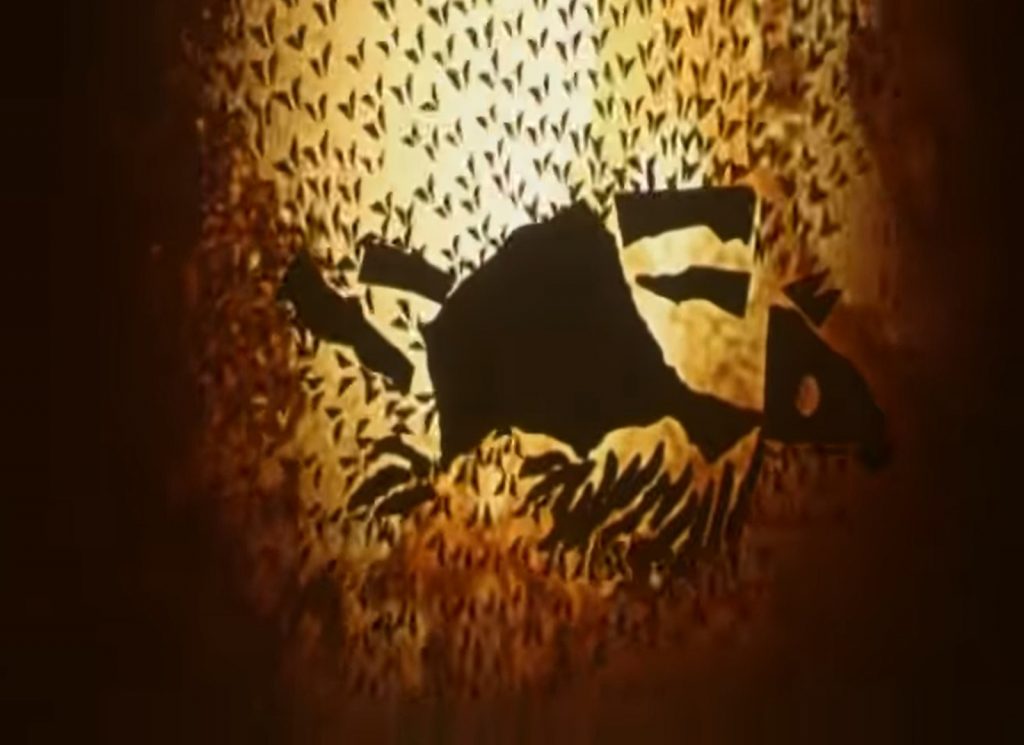
THE CHARM OF THE TWO WHEELS / CZAR KÓŁEK
Kazimierz Urbański
THE CHARM OF THE TWO WHEELS / CZAR KÓŁEK
Poland, 1966, 6 min, 35mm-to-digital. Original music by Krzysztof Penderecki.
One of the highlights of Polish avant-garde cinema in the 1960s, this film is a critique of industry and its destructive influence on the environment. On the soundtrack Penderecki mixes a sped-up recording of Nikołaj Rimski-Korsakow’s “Flight of the Bumblebee” with electronically produced sounds representing the environment.
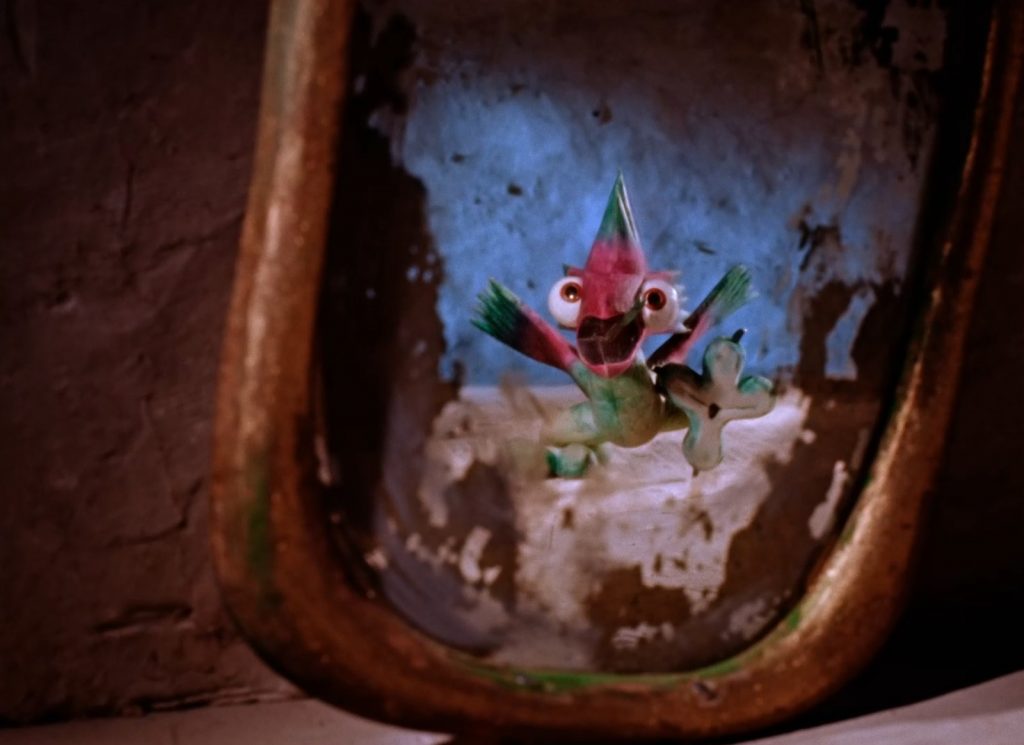
BASILISK ENCOUNTER / SPOTKANIE Z BAZYLISZKIEM
Leokadia Serafinowicz
BASILISK ENCOUNTER / SPOTKANIE Z BAZYLISZKIEM
Poland, 1961, 9.5 min, 35mm-to-digital. Original music by Krzysztof Penderecki.
This stop-motion version of the legend of the Basilisk terrifies thanks to flickering, unstable images, an encircling, labyrinthine space, and eerie electronic music. The movie combines sounds of the void, mockingly descending to the depths of subconsciousness, with a joyful accompaniment of a bedtime story. In Penderecki’s vision, the monster from the past heralds anxiety for the future.
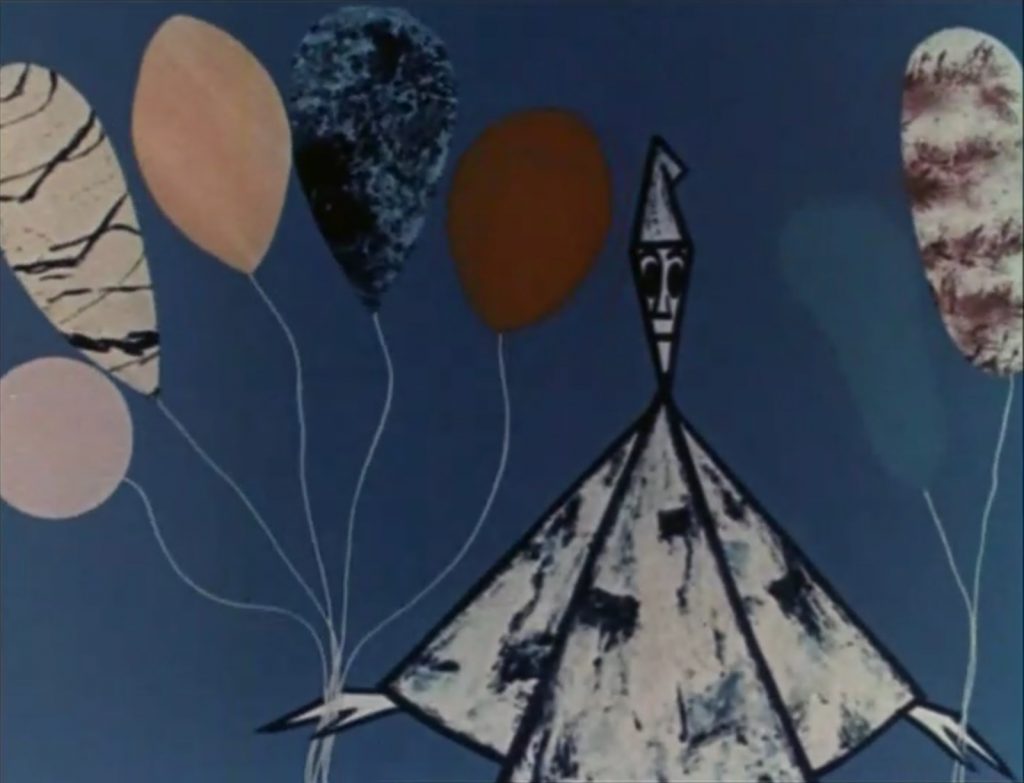
THE HARLEQUIN / ARLEKIN
Mirosław Kijowicz
THE HARLEQUIN / ARLEKIN
Poland, 1960, 6 min, 35mm-to-digital. Original music by Krzysztof Penderecki.
The Harlequin’s dance with balloons is set to vibrant percussion. Light and heavy forms float around the Harlequin, who is both a ballet master and a harpist.
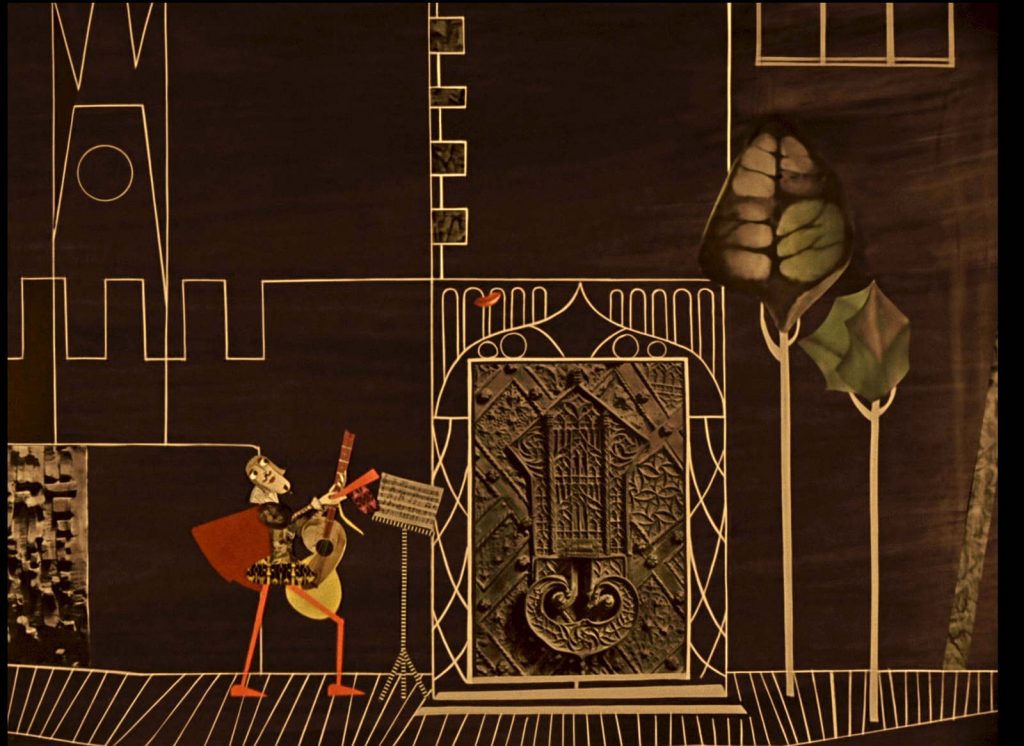
DON JUAN
Jerzy Zitzman
DON JUAN
Poland, 1963, 10 min, 35mm-to-digital. Original music by Krzysztof Penderecki.
A parodic account of the adventures of the character from Molière’s drama and Byron’s poem. The soundtrack exaggerates various sound effects – hoofbeats, gunshots, a choir, an Italian pop song – into a cacophonous collage. In this telling, Don Juan is a perpetual motion machine, generating endless collisions.
Krzysztof Dębowski
SPACE TRIP / WYCIECZKA W KOSMOS
Poland, 1961, 11 min, 35mm-to-digital. Original music by Krzysztof Penderecki.
This adaptation of the first part of Stanisław Lem’s STAR DIARIES narrates the adventures of space traveler Ijon Tichy on an uninhabited planet.
Krzysztof Dębowski
THE TRAP / PUŁAPKA
Poland, 1962, 9 min, 35mm-to-digital. Original music by Krzysztof Penderecki.
This sequel to SPACE TRIP, covering the second part of Lem’s STAR DIARIES, features an electronic soundtrack of whispers, whistling, and operatic cries.
Jerzy Zitzman
ICARUS / IKAR
Poland, 1966, 11 min, 35mm-to-digital
A puppet animation film about humans’ eternal longing for flying. In a crowd of people, you can always find one incorrigible dreamer. A fearless hero never stops perfecting their costume and technique so they can soon get off the ground.
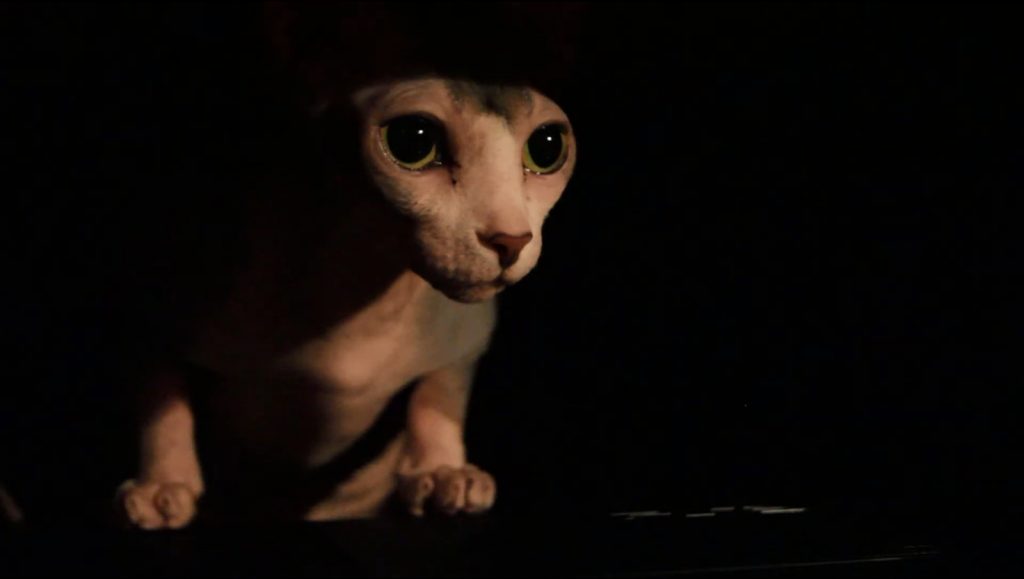
PERSEPHONE / PERSEFONA
Steph Twyford-Rigley
PERSEPHONE / PERSEFONA
U.S., 2016, 3 min, digital. Featuring Krzysztof Penderecki’s “Cello Concerto No 1” (1973).
PERSEPHONE combines an excerpt from Penderecki’s “Cello Concerto No 1” with a static image of a shivering cat, emerging from the shade.
Total running time: ca. 80 min.
Guest-curated by Adriana Prodeus, this program is co-presented with the Polish Cultural Institute New York.
This program will screen theatrically at Anthology on March 29, as well as online from March 30-April 12. Access details for the online component will be announced soon.
Lead image: Krzysztof Dębowski, THE TRAP / PUŁAPKA, film still.



